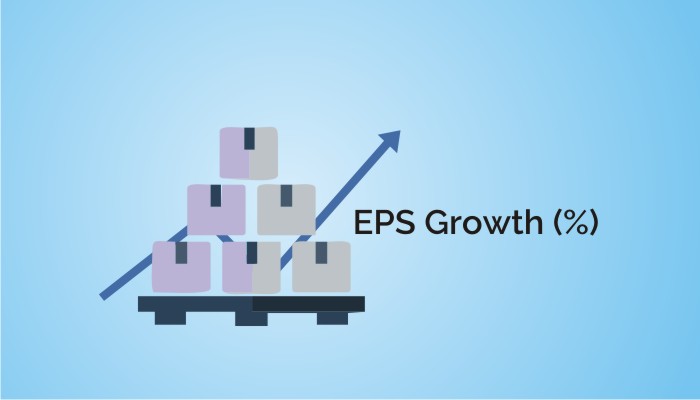The Importance Of Evaluating Oil And Gas Prices In Your Business

Oil and gas prices today are constantly fluctuating, so it is important for businesses to stay aware of these changes. Evaluating energy prices is an essential part of running a successful business, as it allows companies to remain competitive in their respective markets. In this blog post, we will discuss why evaluating oil and gas prices graph is important and how it can impact your business.
What are Oil and Gas Prices?
Oil and gas prices are the cost of purchasing crude oil, natural gas, and other energy sources. These prices fluctuate with market conditions such as supply and demand, regional weather, political events, and global economic conditions. The cost of oil and gas affects the cost of many goods and services that people rely on every day, from gasoline to electricity.
When oil and gas prices go up, it can have a ripple effect on the entire economy. This is because higher energy costs can lead to increased costs for manufacturers, who then pass these costs on to consumers. In turn, higher energy costs can lead to higher inflation rates and an overall decrease in the purchasing power of consumers.
It is important for businesses to stay up to date with current energy prices so that they can plan for their future expenses. Companies should also understand how their own production and consumption of energy resources can affect their bottom line. By evaluating oil and gas prices, businesses can make more informed decisions about their operations and be better equipped to adjust their strategy when necessary.
How Do Oil And Gas Prices Affect Businesses?
Oil and gas prices are important for businesses because they directly affect their bottom line. Oil and gas prices can have a huge impact on a business’s profitability, costs, and competitive advantage in the market.
Businesses that rely on oil and gas as an input cost, such as energy companies and transportation businesses, will be particularly sensitive to changes in the price of these commodities. When oil and gas prices increase, these companies may be forced to pass on the cost to their customers or reduce profit margins.
On the other hand, businesses that rely on these commodities as a source of revenue will benefit when prices increase. For example, many businesses use natural gas as a source of electricity. When the cost of natural gas rises, those businesses will see an increase in their income.
Oil and gas prices can also affect consumer spending. When prices rise, consumers may be less likely to purchase items they consider unnecessary. This can cause a decrease in demand and ultimately, profits for companies.
Finally, oil and gas prices can influence global markets. When prices fluctuate significantly, it can create economic instability around the world, which can have serious repercussions for businesses.

Why Is It Important To Evaluate Energy In Your Business?
Evaluating energy in your business is essential for ensuring that your operations run as efficiently and cost-effectively as possible. Rising oil and gas prices have a major effect on the bottom line of many businesses, especially those that use energy-intensive products. When energy prices rise, so do the costs associated with running a business. By understanding and analysing energy trends, businesses can stay ahead of the curve and make more informed decisions about their operations.
First, evaluating energy prices gives businesses a better understanding of how their operations will be impacted by changes in the market. By knowing what their current expenses are, businesses can budget accordingly and plan for any potential increases or decreases in energy costs. This helps to protect them from financial surprises and allows them to make strategic decisions about their operations in advance.
Second, evaluating energy prices helps businesses identify ways to save money. By researching alternative sources of energy or suppliers, businesses can find ways to cut costs without sacrificing quality or efficiency. Businesses that regularly evaluate energy prices can also take advantage of lower rates when they become available.
Finally, evaluating energy prices is beneficial because it helps businesses stay competitive. As energy prices fluctuate, businesses must ensure that their own costs remain competitive to remain profitable. Evaluating energy prices helps businesses stay up to date with current pricing structures and understand how they compare to the competition. This helps them maintain a competitive edge in the marketplace.
Evaluating energy prices is an important part of running a successful business. It helps businesses understand their current energy costs and plan for any potential increases or decreases. It also allows them to identify ways to save money, stay competitive, and ensure that their operations run as efficiently and cost-effectively as possible.
How Can You Evaluate Energy In Your Business?
Evaluating energy in your business is an important part of staying competitive and profitable. It can help you to save money on energy costs, reduce emissions, and improve operational efficiency. Here are some ways to evaluate energy in your business:
- Track Your Usage: To understand how energy is used in your business, it’s important to track your usage patterns. Look for areas of excessive consumption and identify opportunities to reduce consumption. This may include optimizing equipment usage or investing in energy efficient lighting.
- Invest in Energy Audits: An energy audit will help you identify potential savings opportunities within your business. Auditors can identify areas where you can increase efficiency and reduce costs. For example, they can look at insulation, HVAC systems, and lighting to identify areas where you can save energy.
- Monitor Oil and Gas Prices: Oil and gas prices can have a significant impact on your bottom line. Monitoring prices can help you plan and make informed decisions on when to purchase fuel or other energy sources.
- Implement Strategies: Once you’ve identified areas of improvement, you need to put strategies in place to reduce energy usage. This could include installing energy-efficient equipment, setting up an effective maintenance schedule, and creating energy-saving policies for staff.
By implementing these strategies, you can ensure that your business is energy-efficient and cost-effective. Evaluating energy in your business is essential for staying competitive and profitable.






